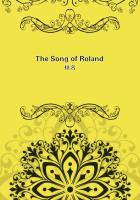"That makes no difference. She shines through everything, through the infernal awfulness of these days, through my father's anger, and my mother's illness, whatever it proves to be--I think about them really with all my might, and at the end I find I've been thinking about Sylvia. Everything is she--the woods, the tide--oh, I can't explain."They had walked across the marshy land at the edge of the estuary, and now in front of them was the steep and direct path up to the house, and the longer way through the woods. At this point the estuary made a sudden turn to the left, sweeping directly seawards, and round the corner, immediately in front of them was the long reach of deep water up which, even when the tide was at its lowest, an ocean-going steamer could penetrate if it knew the windings of the channel. To-day, in the windless, cold calm of mid-winter, though the sun was brilliant in a blue sky overhead, an opaque mist, thick as cotton-wool, lay over the surface of the water, and, taking the winding road through the woods, which, following the estuary, turned the point, they presently found themselves, as they mounted, quite clear of the mist that lay below them on the river.
Their steps were noiseless on the mossy path, and almost immediately after they had turned the corner, as Francis paused to light a cigarette, they heard from just below them the creaking of oars in their rowlocks. It caught the ears of them both, and without conscious curiosity they listened. On the moment the sound of rowing ceased, and from the dense mist just below them there came a sound which was quite unmistakable, namely, the "plop" of something heavy dropped into the water. That sound, by some remote form of association, suddenly recalled to Michael's mind certain questions Aunt Barbara had asked him about the Emperor's stay at Ashbridge, and his own recollection of his having gone up and down the river in a launch. There was something further, which he did not immediately recollect. Yes, it was the request that if when he was here at Christmas he found strangers hanging about the deep-water reach, of which the chart was known only to the Admiralty, he should let her know. Here at this moment they were overlooking the mist-swathed water, and here at this moment, unseen, was a boat rowing stealthily, stopping, and, perhaps, making soundings.
He laid his hand on Francis's arm with a gesture for silence, then, invisible below, someone said, "Fifteen fathoms," and again the oars creaked audibly in the rowlocks.
Michael took a step towards his cousin, so that he could whisper to him.
"Come back to the boat," he said. "I want to row round and see who that is. Wait a moment, though."The oars below made some half-dozen strokes, and then were still again. Once more there came the sound of something heavy dropped into the water.
"Someone is making soundings in the channel there," he said.
"Come."
They went very quietly till they were round the point, then quickened their steps, and Michael spoke.
"That's the uncharted channel," he said; "at least, only the Admiralty have the soundings. The water's deep enough right across for a ship of moderate draught to come up, but there is a channel up which any man-of-war can pass. Of course, it may be an Admiralty boat making fresh soundings, but not likely on Boxing Day.""What are you going to do?" asked Francis, striding easily along by Michael's short steps.
"Just see if we can find out who it is. Aunt Barbara asked me about it. I'll tell you afterwards. Now the tide's going out we can drop down with it, and we shan't be heard. I'll row just enough to keep her head straight. Sit in the bow, Francis, and keep a sharp look-out."Foot by foot they dropped down the river, and soon came into the thick mist that lay beyond the point. It was impossible to see more than a yard or two ahead, but the same dense obscurity would prevent any further range of vision from the other boat, and, if it was still at its work, the sound of its oars or of voices, Michael reflected, might guide him to it. From the lisp of little wavelets lapping on the shore below the woods, he knew he was quite close in to the bank, and close also to the place where the invisible boat had been ten minutes before. Then, in the bewildering, unlocalised manner in which sound without the corrective guidance of sight comes to the ears, he heard as before the creaking of invisible oars, somewhere quite close at hand. Next moment the dark prow of a rowing-boat suddenly loomed into sight on their starboard, and he took a rapid stroke with his right-hand scull to bring them up to it. But at the same moment, while yet the occupants of the other boat were but shadows in the mist, they saw him, and a quick word of command rang out.
"Row--row hard!" it cried, and with a frenzied churning of oars in the water, the other boat shot by them, making down the estuary.
Next moment it had quite vanished in the mist, leaving behind it knots of swirling water from its oar-blades.
Michael started in vain pursuit; his craft was heavy and clumsy, and from the retreating and faint-growing sound of the other, it was clear that he could get no pace to match, still less to overtake them. Soon he pantingly desisted.
"But an Admiralty boat wouldn't have run away," he said. "They'd have asked us who the devil we were.""But who else was it?" asked Francis.
Michael mopped his forehead.
"Aunt Barbara would tell you," he said. "She would tell you that they were German spies."Francis laughed.
"Or Timbuctoo niggers," he remarked.
"And that would be an odd thing, too," said Michael.
But at that moment he felt the first chill of the shadow that menaced, if by chance Aunt Barbara was right, and if already the clear tranquillity of the sky was growing dim as with the mist that lay that afternoon on the waters of the deep reach, and covered mysterious movements which were going on below it. England and Germany--there was so much of his life and his heart there. Music and song, and Sylvia.















